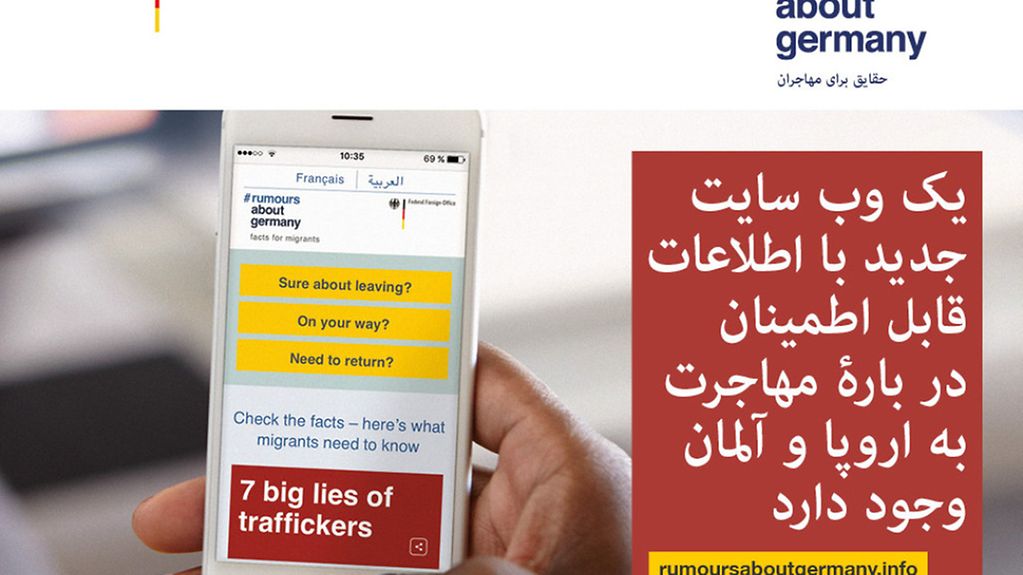Der Link wurde in Ihrer Zwischenablage gespeichert
The Federal Government's "Rumours about Germany" information campaign can now give potential refugees and migrants a realistic picture about Germany in Dari, too. The campaign website (www.rumoursaboutgermany.info) pools all the relevant information and uses facts to debunk widespread rumours about Germany.
2 Min. Lesedauer

www.rumoursaboutgermany.info: What migrants need to know about Germany
Foto: Bundesregierung
The Federal Government wants the campaign to be a source of information not a deterrent. "We want to help paint a realistic picture of Germany. It's no help to anyone if people come with expectations we cannot fulfil," said Michelle Müntefering, Minister of State at the Federal Foreign Office.
Rumours about life in Germany and Europe abound among people from countries like Nigeria, Pakistan and Algeria who are thinking about fleeing to Germany. According to some, every migrant who makes it to Germany is given money on arrival and a house.
This misinformation is often spread deliberately via social media by human traffickers and people smugglers to encourage migrants to leave their home countries.
The Federal Foreign Office launched its "Rumours about Germany" information campaign in 2015. The information provided on the website (www.rumoursaboutgermany.info) has now been translated into Dari, a variety of Persian spoken in Afghanistan.
The site aims to provide clear information and simple answers for people planning to leave their home countries and make their way to Germany – and for those who are already in transit.
As well as in Dari, the information is available in English, French, Arabic, Urdu, Farsi and Tigrinya.
"Rumours about Germany" debunks commonly heard rumours and explains that refugees are not automatically given a job in Germany, for instance, and that they cannot move on to Canada if they do not like it here.
In addition, the website shows migrants what alternatives are available by providing information about various programmes supporting those who wish to return home voluntarily. There is also information about humanitarian programmes in refugee camps in transit countries and about aid programmes in countries of origin.
The website, which is also smartphone-enabled, is advertised on numerous social media platforms and on posters and flyers in Germany as well as in countries of origin.